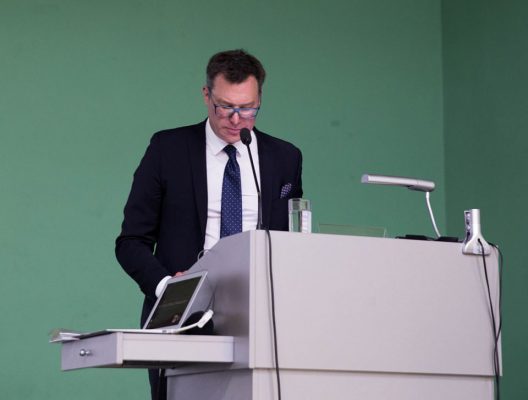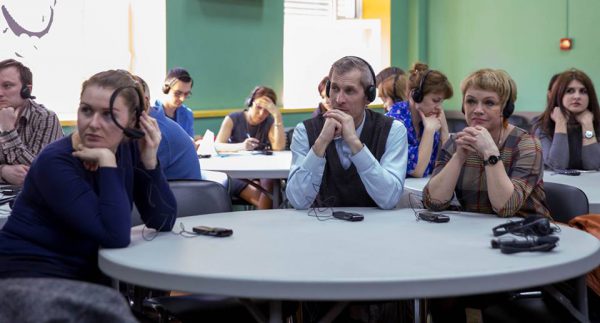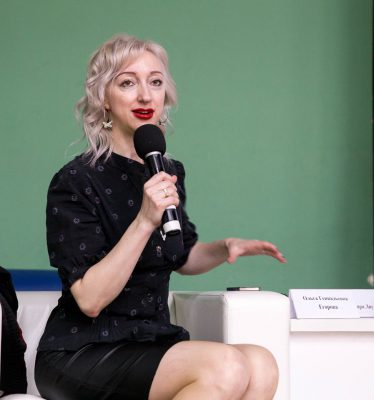Seminar on International Intellectual Property and Patents with WIPO and FIT Experts
 Today, the rapid development of science and technology provides us with almost unlimited opportunities for obtaining knowledge and professional growth. At the same time, it creates new challenges that can affect both us and perhaps the most valuable product that people possess – information and intellectual property, namely, copyrights on innovations, discoveries and transformations. That is why global cooperation in the field of intellectual property protection is one of the key areas in activities of international organizations, educational institutions and different enterprises.
Today, the rapid development of science and technology provides us with almost unlimited opportunities for obtaining knowledge and professional growth. At the same time, it creates new challenges that can affect both us and perhaps the most valuable product that people possess – information and intellectual property, namely, copyrights on innovations, discoveries and transformations. That is why global cooperation in the field of intellectual property protection is one of the key areas in activities of international organizations, educational institutions and different enterprises.
On April 11, Astrakhan State University (ASU) hosted a seminar on international intellectual property and patents with the participation of Mr. Geoffrey Westgate, the Head of the Support Section of PCT Translation Service of the World Intellectual Property Organization (WIPO) and Mr. Henry Liu, the Нonorary Advisor of the International Federation of Translators (FIT).
The event was attended by scientists and researchers of ASU, as well as representatives of other Astrakhan educational institutions, who are also concerned about copyrights protection issue and might use the possibility of submitting patent applications at the international level.
Having greeted all the participants in the Russian language, Mr. Westgate began his speech by giving basic information about WIPO, peculiarities of working with terminology and patents, and also about existing and potential partners of this organization. The expert stressed that the WIPO mission is to create a global system that would protect intellectual property (IP) rights and establish general rules for the IP management.
 Speaking about the patent system, Mr. Westgate noted that the patent is extremely important as a way to protect the invention and guarantee the unique right to intellectual property. It is beneficial not only to an inventor, but also to the development of global science. The expert went on to talk about the WIPO database, which contains about 60 million patents. Every Thursday data on new inventions are published on the website. It’s about 500 inventions per week! Special attention was paid to the role of linguists in the WIPO patent system development. The organization is engaged in the translation of a huge number of patent documents and different publications from 10 languages, and the volume of work is about 550 thousand translations per year.
Speaking about the patent system, Mr. Westgate noted that the patent is extremely important as a way to protect the invention and guarantee the unique right to intellectual property. It is beneficial not only to an inventor, but also to the development of global science. The expert went on to talk about the WIPO database, which contains about 60 million patents. Every Thursday data on new inventions are published on the website. It’s about 500 inventions per week! Special attention was paid to the role of linguists in the WIPO patent system development. The organization is engaged in the translation of a huge number of patent documents and different publications from 10 languages, and the volume of work is about 550 thousand translations per year.
Also, the discussion touched upon the terminology database, which is formed by identifying terms from patents and information which is associated with them, and an accurate system of terms is created on this basis. This service is called WIPO Pearl, and it is of high quality since it is developed by linguists. The system covers different fields of science and technology and is convenient for finding synonyms and the context of using a term.
 As for the partnership relations development, WIPO supports a partnership in two areas: the fellowship program for MA students and institutional cooperation. At the moment, the list of acting institutional partners of WIPO includes the Government of Canada, the EU European Parliament and various educational institutions, including Astrakhan State University.
As for the partnership relations development, WIPO supports a partnership in two areas: the fellowship program for MA students and institutional cooperation. At the moment, the list of acting institutional partners of WIPO includes the Government of Canada, the EU European Parliament and various educational institutions, including Astrakhan State University.
n conclusion, Mr. Westgate stressed that WIPO’s goal is to create a worldwide patent network and to ensure that WIPO’s partners interact with each other. Scientists and researchers of ASU, who took part in the discussion, asked the guest a few questions about the possibilities of cooperation in the technical field, the access to the terminological database and consultations with WIPO experts as well as opportunities to become a WIPO expert and the prospects for the submission of Russian patents to this organization.
In his speech, Mr. Henry Liu, the Honorary Advisor of the International Federation of Translators (FIT), also touched upon a technical aspect and an extremely urgent problem of the translator’s profession development – a widespread use of machine translation and a threat for the profession of a translator and interpreter to disappear in the future. According to the expert, despite the relative success of the use of machine translation systems in individual companies, it is too early to talk about their universality, because basically the system data are adjusted to the vocabulary and terminology of a certain company and may simply not be suitable for another. And if a researcher has a need to translate, say, a patent application for its submission to WIPO, he or she will rather turn to language professionals, since the application should sound natural and clear. Therefore, in the nearest future, translators and interpreters will be still in demand, and machine translation systems can be a convenient tool for improving their work.
Photo: TV Media Center of ASU





